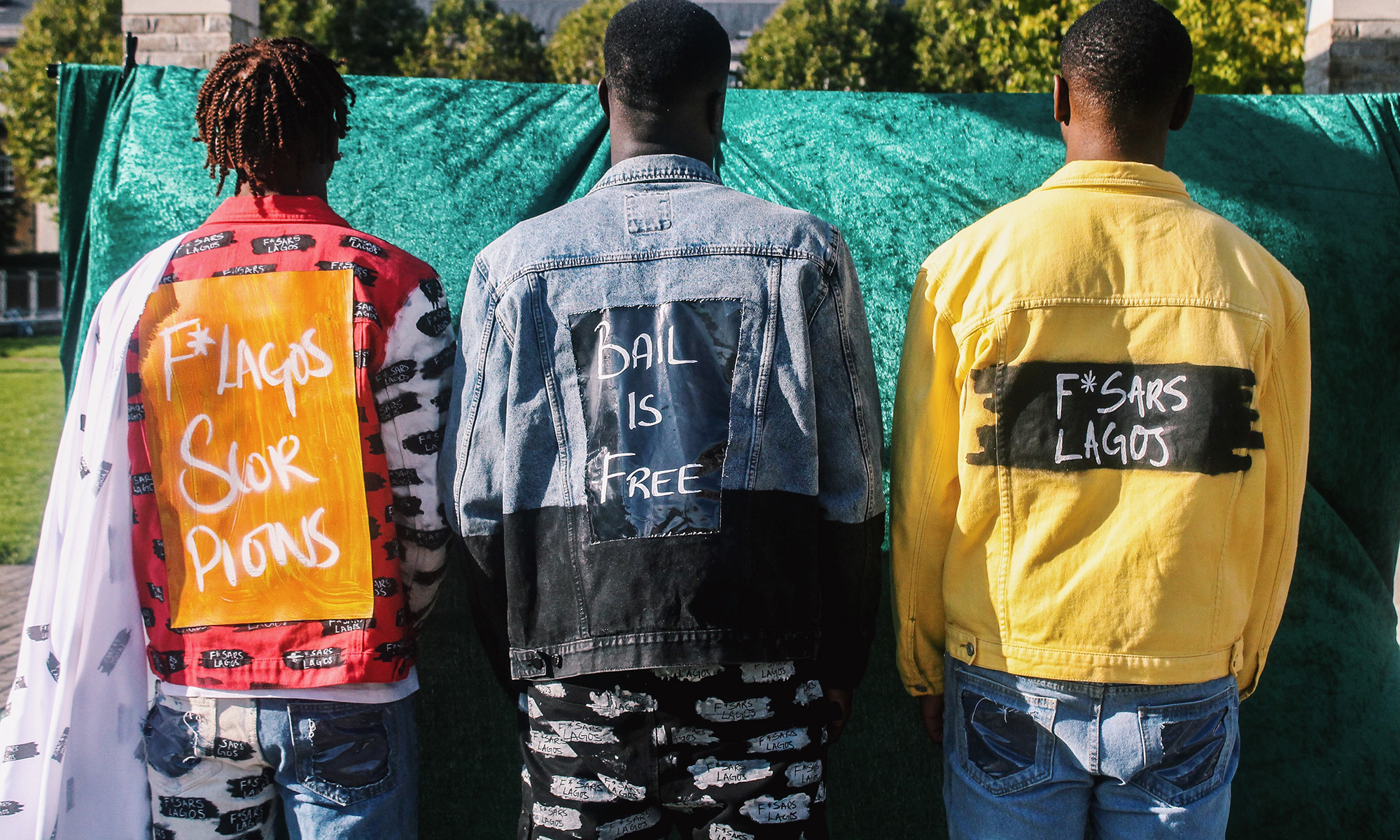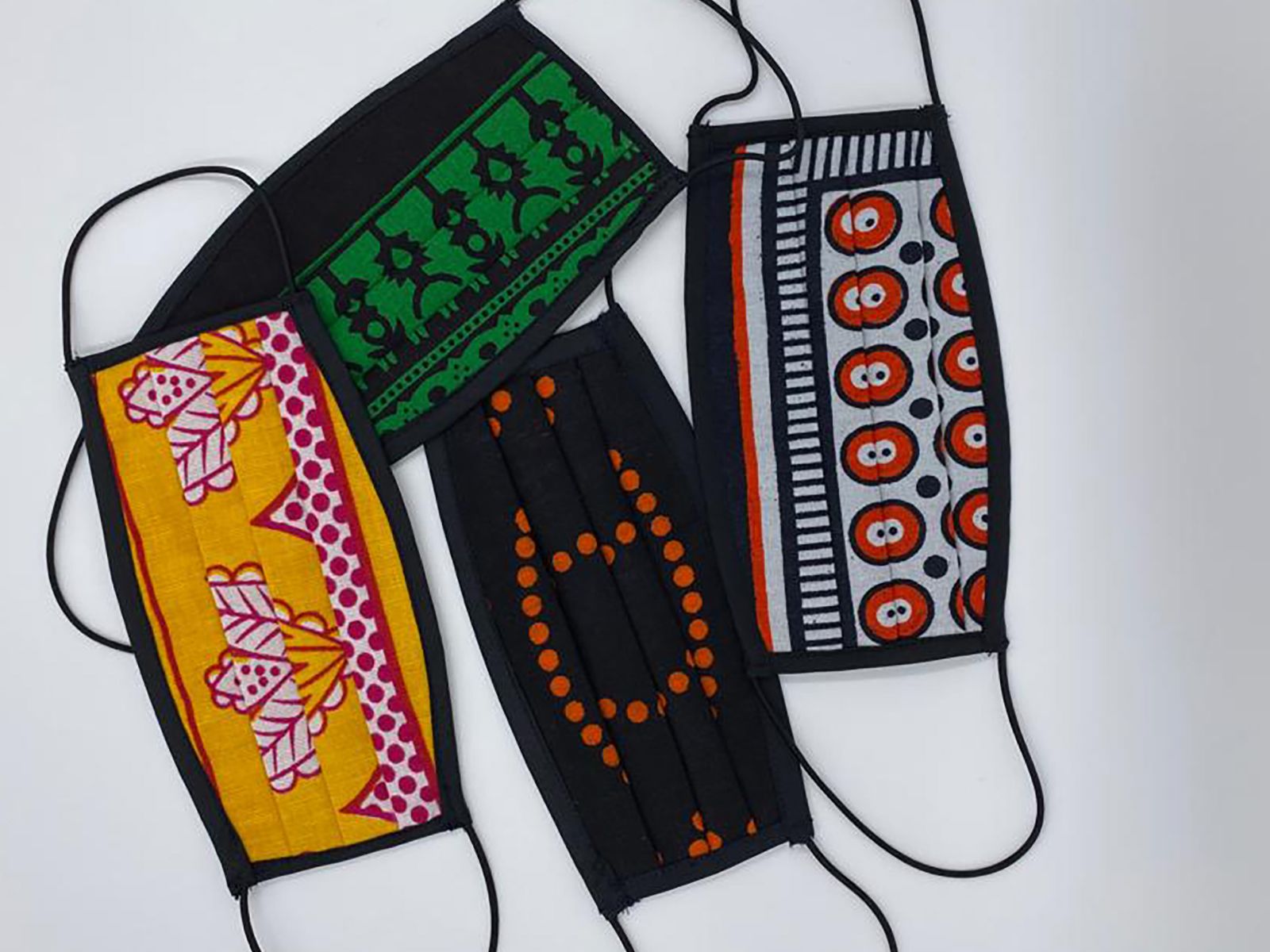At London College of Fashion we believe it’s important that our Black community are authentically represented all year round, so we will continue to use our platforms and the space we have, to listen and learn, educate and celebrate. LCF Student Communications Officer, Sachan Williams, is in conversation with Class of 2020 graduate, Jehosafeen James, discussing her Nigerian heritage and how this influences her art and practice.
What do you think about when you hear Black History Month?
The first thing I think is it doesn’t need the month at the end of that title, I just think remove the month Black history is just Black history! You can’t saturate the past into one month, into a few days or a few weeks, and I just don’t think it’s enough to just give recognition to and allow for that I guess digestion of that kind of information, knowledge, yeah that’s the first thing I think of, just remove the month from the title - Black history!
Is there a specific person in Black History that inspires you?
I can’t say that there is one specific person that I look up to but there are many people that I look up to in terms of my work, my way of living so it kind of depends. So with my creative side I do look to a lot of musicians one being Lauryn Hill because I feel like she’s quite in touch with her spiritual side, quite in touch with the world in terms of the energy and the vibes and not just the physical so I respect that about her. In terms of everyday life I think someone like Maya Angelou, I just love her poetry and I feel like there’s a lot to learn and to take from her poetry and the words that she gives, but that’s just to name a few. I feel like it’s unfair to narrow it down to just one person because each day is slightly different to the previous one, and you will probably I guess take from people or an experience that is more related to each day, so I guess that will change every time. At the moment I am in a place where I am trying to be more familiar with vibes, spirits and energy. I mean because of the whole Covid situation I wasn’t able to film my own imagery for ANIMUS so I had to look at other videographers work. I think a lot of the film that Is in that reel is by Meji Alabi he’s a videographer and he’s the man behind a lot of the up and coming Nigerian music videos that you see now. I think his most recent work is with Burna Boy for Stormzy’s latest song.
So is that who you draw most of your inspiration from?
For visuals and for direction I definitely always take from his book but in terms of like the vibe, the energy the kind of spirit behind it, even just ANIMUS on a whole and not just the film I definitely take from Fela Kuti, I just love his outlook on life, and I guess his stance on the Nigerian identity and where Nigeria should be right now, and jus where Africa should be in general, he’s a big one for me!
What is ANIMUS, how did that come about?
I have always been passionate about being a Nigerian, what It means to be Nigerian what the identity kind of entails and a lot of people have had opinions on whether I should be concerned with that or not being a diaspora and not being a native, but that’s where this idea has kind of started from it’s trying to gain an understanding and trying to present the Nigerian identity as something that’s multi-dimensional and not something that is static and just one faced. It can be native, it can be diasporic, I guess the meaning of ANIMUS is about heart, soul and mind. I identified that there was this contrast, this cultural tension and conflict between the Nigerian diaspora and Nigerian natives and I was just trying to figure out what can bring us together. You do see a lot of collaboration between the two groups of people through art and music, but I just wanted to establish a deeper connection and one that we could maybe explore through our roots an our future as well, so it was just a case of trying to explore afro-futurism. I kind of got lost and it became this massive rabbit hole but ANIMUS is simultaneously explaining the past and the future of the Nigerian identity, and it doesn’t see the past and the future as dichotomous it’s all merged together.
It isn’t unique to Nigeria, Africa or the Caribbean I just feel like this is the outlook we should have more often - not seeing a nationality or an identity as one static thing it should be something that you feel rather something you can define through physicality.
-

Jehosafeen James BA (Hons) Creative Direction for Fashion - In Our Hands
-
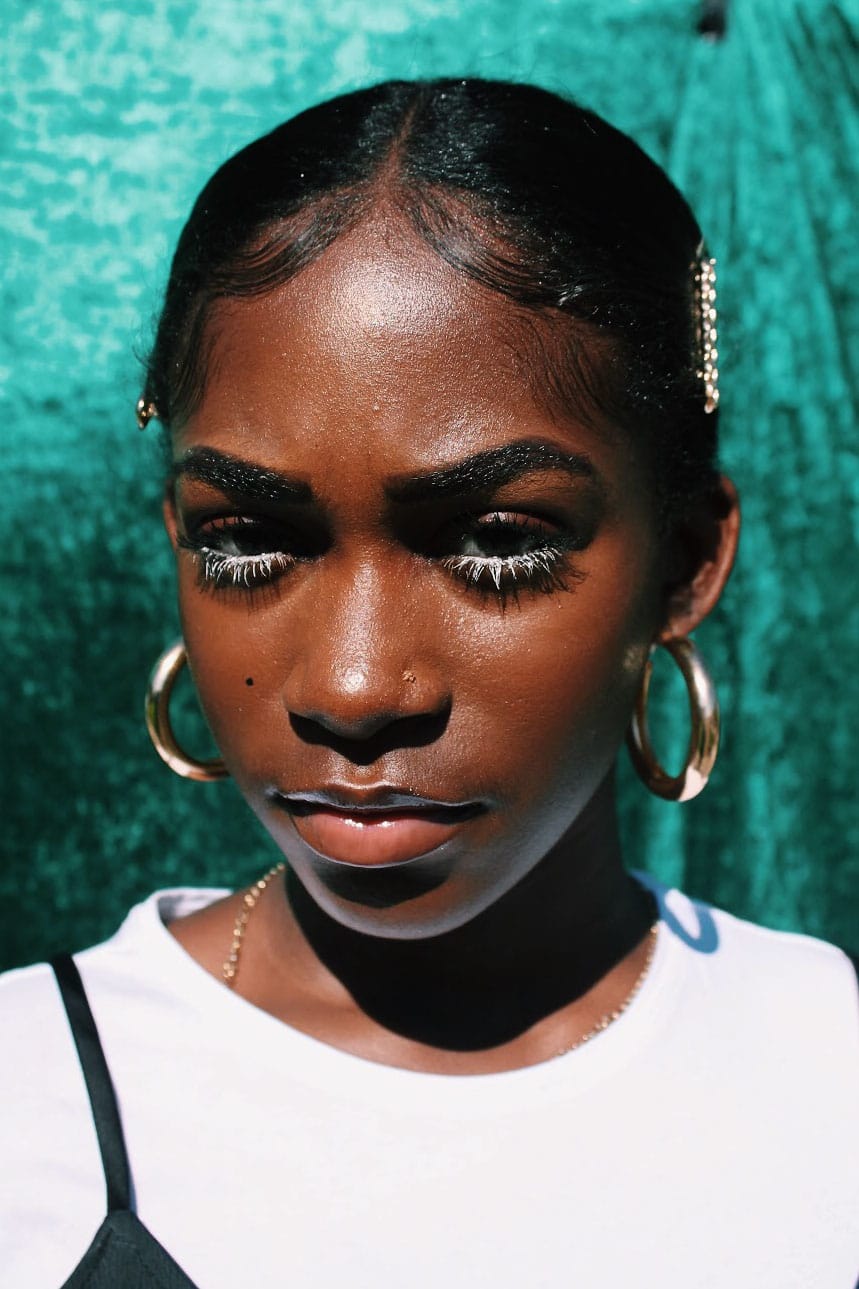
Jehosafeen James BA (Hons) Creative Direction for Fashion - In Our Hands
-
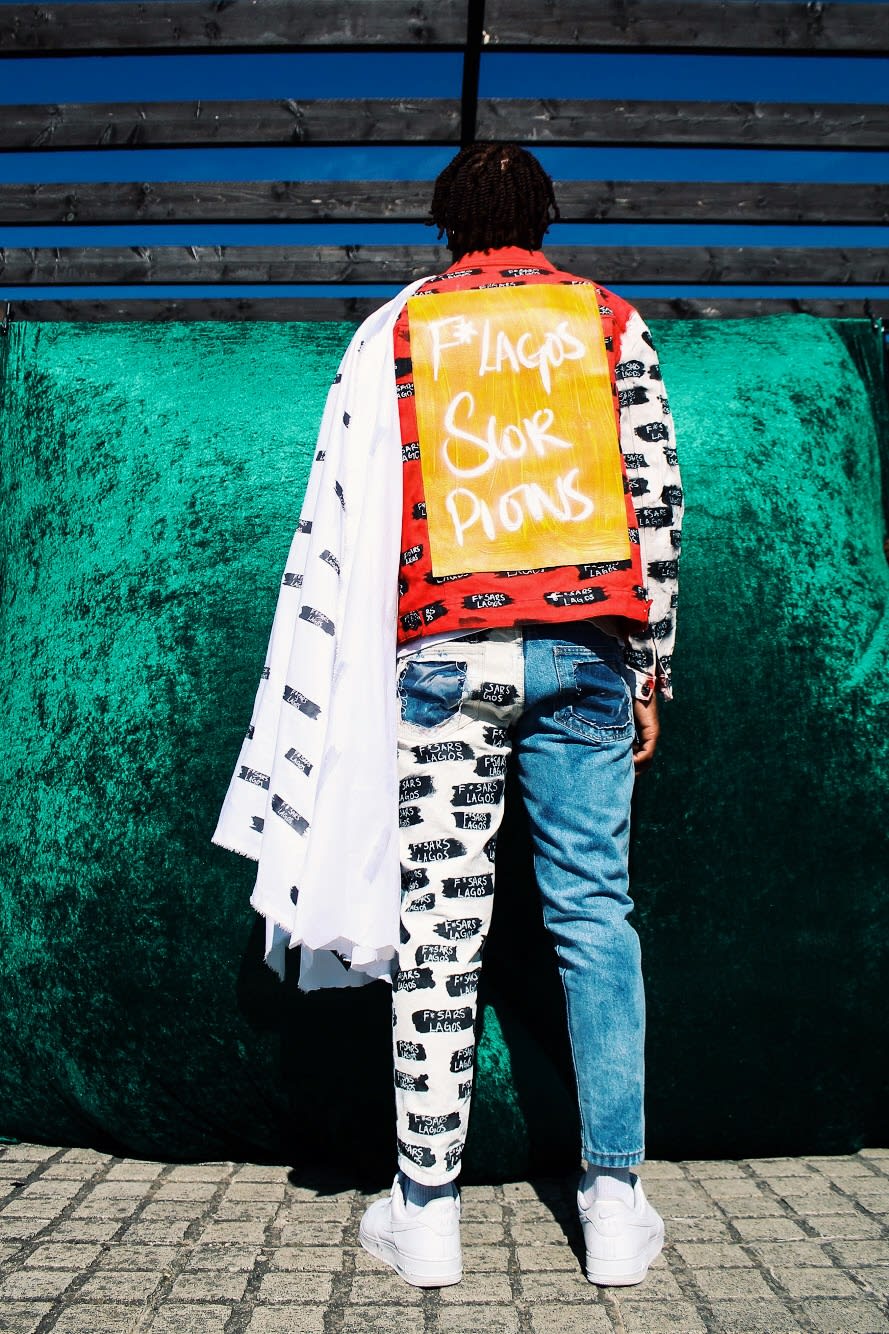
Jehosafeen James BA (Hons) Creative Direction for Fashion - In Our Hands
-
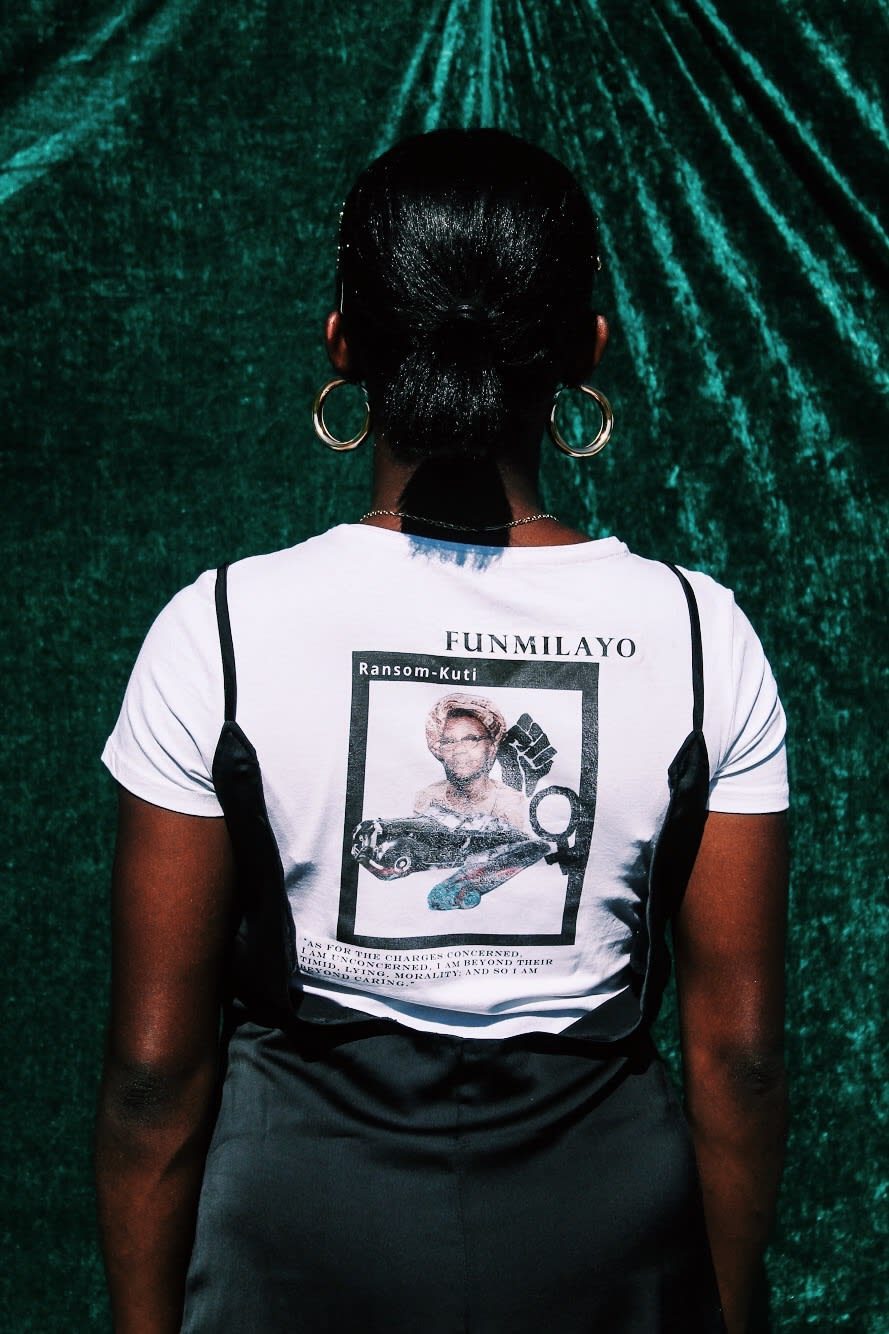
Jehosafeen James BA (Hons) Creative Direction for Fashion - In Our Hands
What does it mean to you to be a Black woman?
First of all I want to answer that by saying what it doesn’t mean, it doesn’t necessarily mean that you have to be strong, I want to just put that out there! Because I am a bit on the fence about the people saying/using the phrase ‘strong black woman’ because we are not always strong that’s not a negative thing though. So I wanted to start by saying that but, I do feel a Black woman is - and I don’t know why but this word always come to me - home. I am not sure why, but I feel like a Black woman is home. It’s the beginning of life. For me creativity and strength can be found in a Black woman but I don’t think that’s what defines the Black woman - not her capacity to deal with challenges but, maybe her capacity to embrace life or her capacity to love, capacity to create, and all those things for me is home.
I was looking at your website and you mentioned something about cultural exchange, and this is something I explored in my final project also. What does cultural exchange mean to you and how do you define it?
That’s a good question - I even relate that to my work. When I was doing a project earlier this year it was influenced by police brutality that’s going on in Nigeria right now, and I had a lot of questions and a lot of people challenging me asking why I feel responsible to tell/cover that kind of story, for me this is where cultural exchange become important. It’s not about me offering a solution, or me being a savour from the west, my thing here is that we always have to make a contribution where we can, that’s where the cultural exchange is. It’s not about always solving the problem but we get one step closer to solving the problem every time we make a contribution because, each time we make a contribution it means that the conversation is continuing and as long as we are continuing and prolonging this discussion we will get to a place where we feel it’s better than where we were. Not necessarily solving problems but getting closer to the solution, and I think that is what cultural exchange is making a contribution and saying something that you think is worth the conversation, worth the discussion. I think it’s also about valuing your agency not just as a creative but just as a human being in general in the world, that’s what that means to me making a valid contribution.
So we just celebrated Nigerian Independence, as a Nigerian hearing those two words how does that make you feel?
On Nigerian Independence day I actually posted on my (Instagram) story ‘we may be seen as independent but we still have quite a long way to go’, so when I hear Nigerian Independence, it just triggers because of the research that I have done. The lead up to the independence when we were a British colony triggers all this imagery that I found when I was doing my research and, it sounds a little bit depressing but it just make me feel like there’s still much to be done. Independence is just the first step because what’s the point in being independent, when you can’t make effective and positive decisions and change. So I think Nigerian Independence is something worth celebrating but it’s also something worth using as a propeller and a motivation for the next step.
-
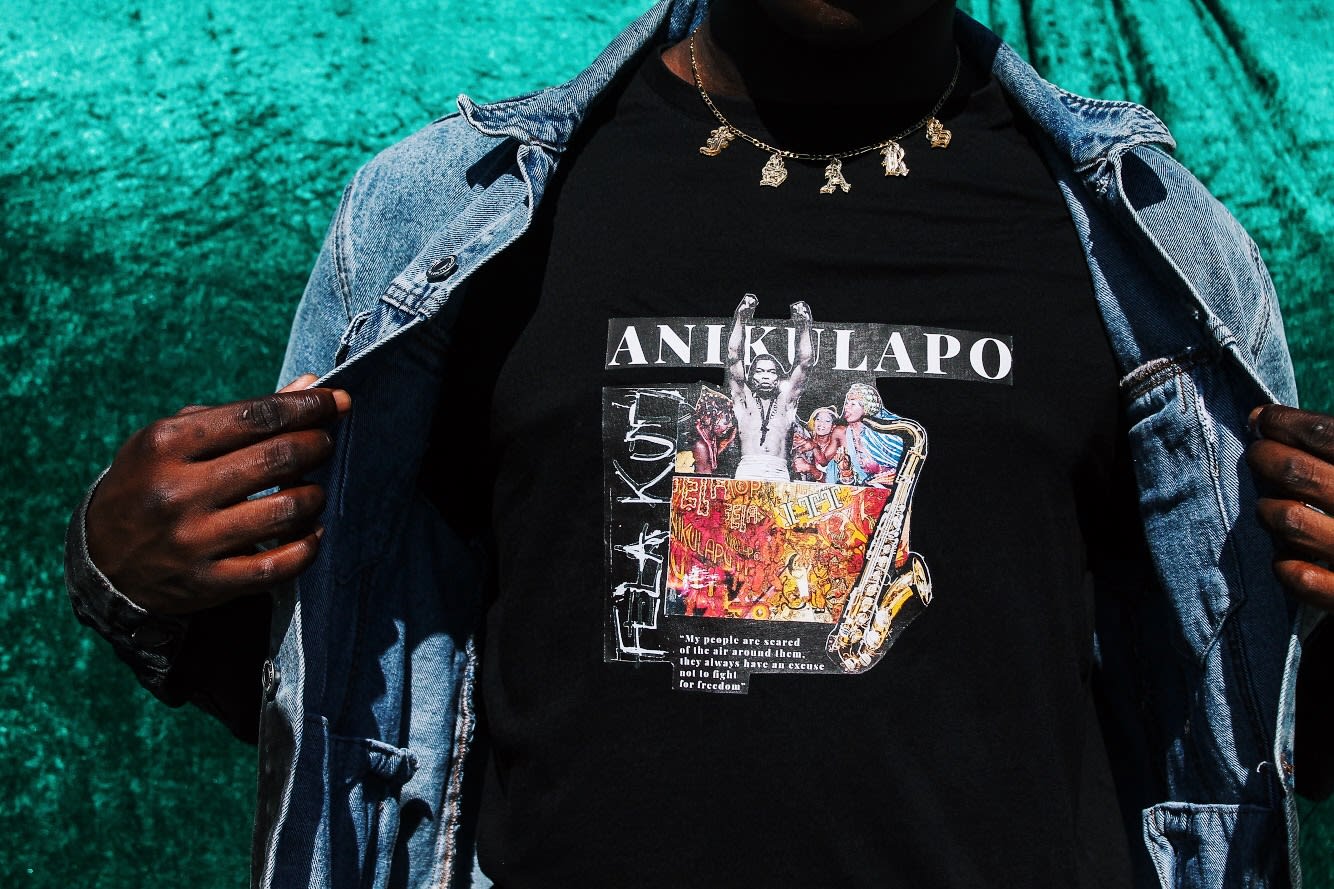
Jehosafeen James BA (Hons) Creative Direction for Fashion - In Our Hands
-
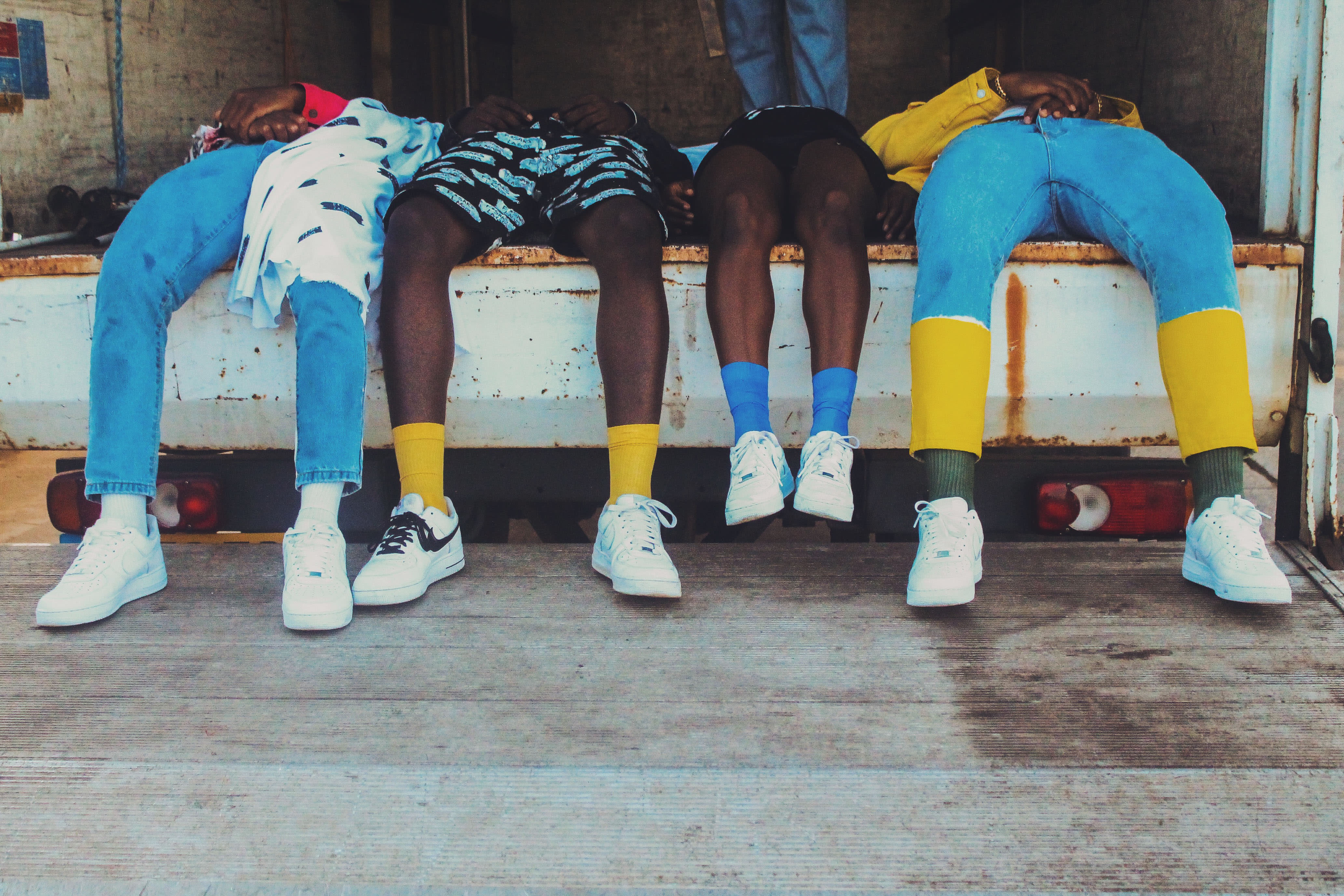
Jehosafeen James BA (Hons) Creative Direction for Fashion - In Our Hands
-
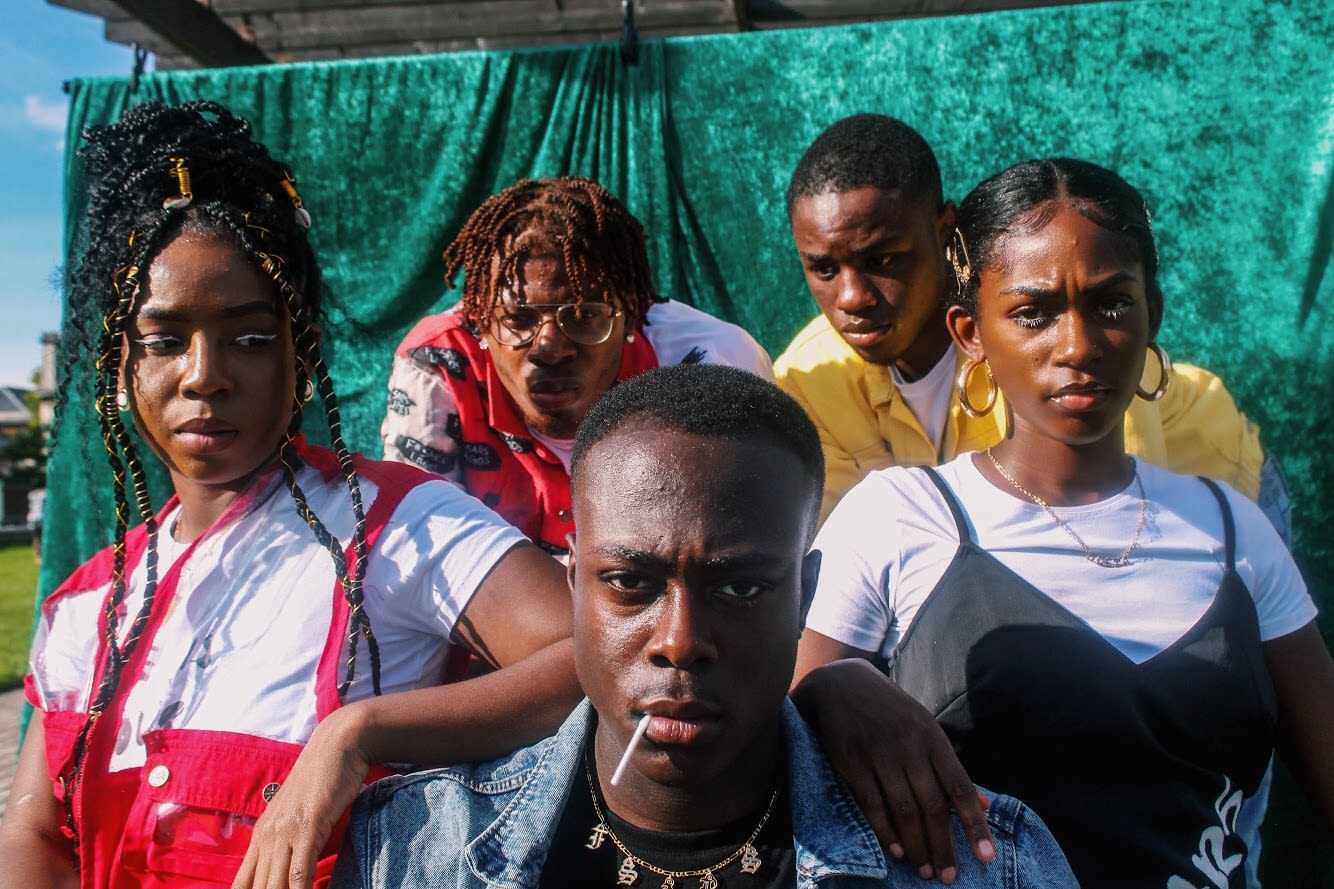
Jehosafeen James BA (Hons) Creative Direction for Fashion - In Our Hands
-
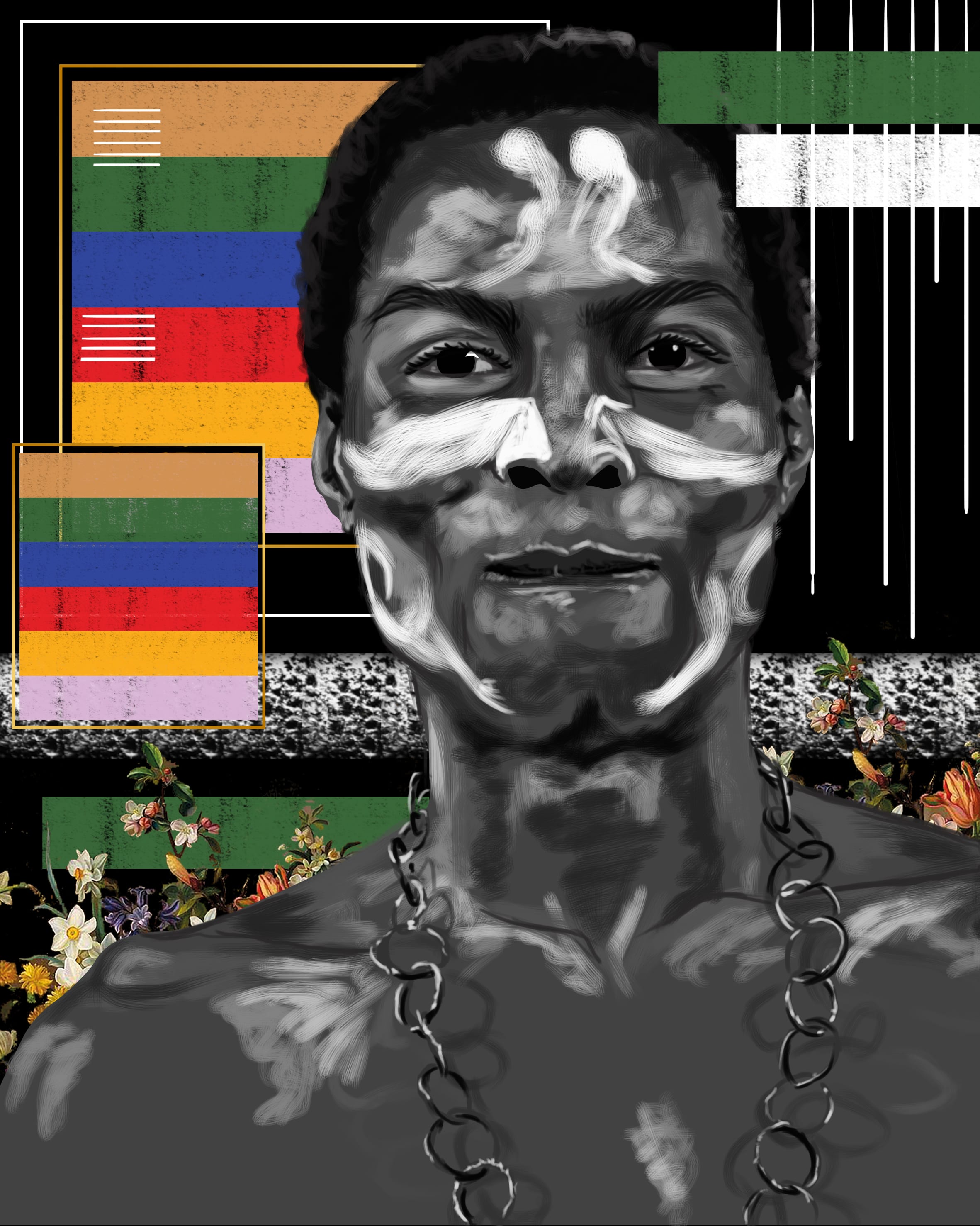
Jehosafeen James BA (Hons) Creative Direction for Fashion - In Our Hands
-
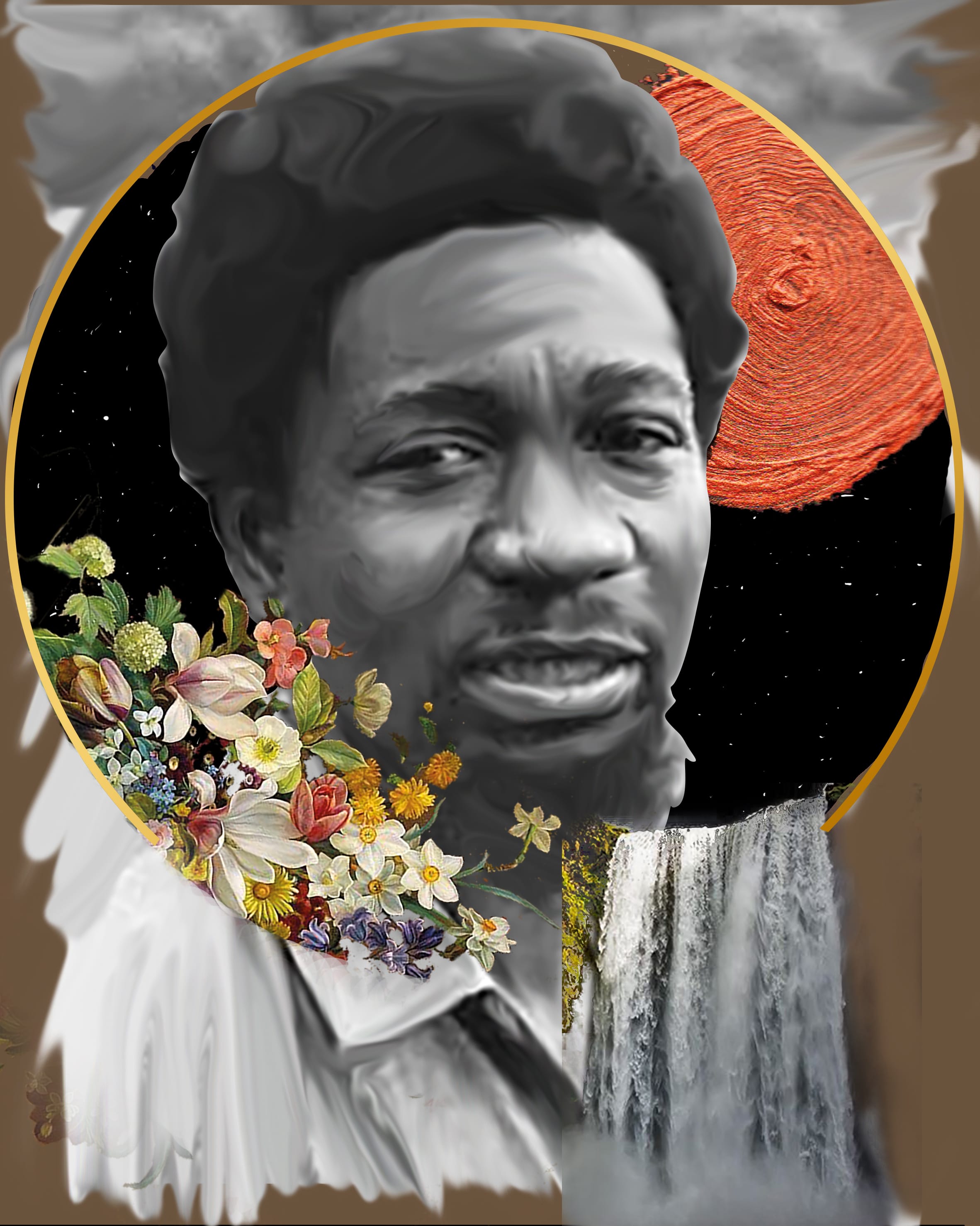
Jehosafeen James BA (Hons) Creative Direction for Fashion - In Our Hands
Some may see these as sensitive subjects, how do you explore sensitive subjects in your field?
I mean I feel like with anything that’s labelled sensitive is probably subjective, it might be sensitive to one person but not to another, so what I have to continuously remember when creating work is that, this is my contribution so it’s like having an opinion not everyone will agree or take well to it but just like when we verbalise our opinions or our feelings we always put it in a way that many be offensive. So likewise in the idea of my work I always disclaim that it’s just a contribution of mine, it’s not something that is factual - not all anyway. Like the project I was telling you about that was influenced by police brutality, which people did find sensitive and I did welcome those questions and the challenges. However, what I did in that instance was have a private screening and a panel discussion so that it was an open discussion for people to ask me questions, for artists who were invited to be asked questions and I just think that’s the way we can deal with sensitive questions or subjects through anything. Not just through creative work but welcoming discussion and opening up that conversation because, then people feel less offended when they feel like their opinions around the subject are just as valid as the opinions that you’ve put out as well. I think that’s the only kind of challenge I have faced in terms of sensitive content. I have never really had other experiences other than that, and sensitivity is part of being human as well, if you actually don’t feel anything about something that looks or feels or sounds impactful, then are you human?
Your work is very culturally dynamic, what are you working on now and how are you finding life after graduation?
Oh my God! it’s actually very very very insane, I did think I was going to be jobless, poor especially with the Covid situation, but so far so good. At the moment I’m working as a content producer for a creative social media agency - we work with clients to put out content for their Instagram pages and design things that will kind of encourage engagement. I also work as an art director at a fashion media agency and they are very much about promoting Black African and Caribbean art and creativity, so it’s a lot of fun working there. And then I work as a designer at a creative studio based in America and we do things like branding. However, on a personal front, I am currently trying to work on some more films too, my next one is going to be more in line with dealing with your inner self, because I feel like within the Black community there is not enough inward appraisal, which I think has led to people disregarding and overlooking mental health, so that’s what I am working on right now.
So I guess my last question for you is, do you feel you have to work harder as a Black women in your industry?
For sure. I think one because I am Black and two because I am a woman, so I’ve got to work double as hard but here for the challenge, I am not complaining at all. I think it is what It is we’ll continue to fight for, you know to be seen, fight to be heard but I’m not complaining because I am always up for the challenge. And I think that the challenge here is to create work that speaks for me so that I won’t have to scream as loud!
Well Safeen It was lovely speaking with you and thank you for taking time to speak with me, this was a very insightful conversation and I look forward to seeing your latest project blossom into something spectacular.
